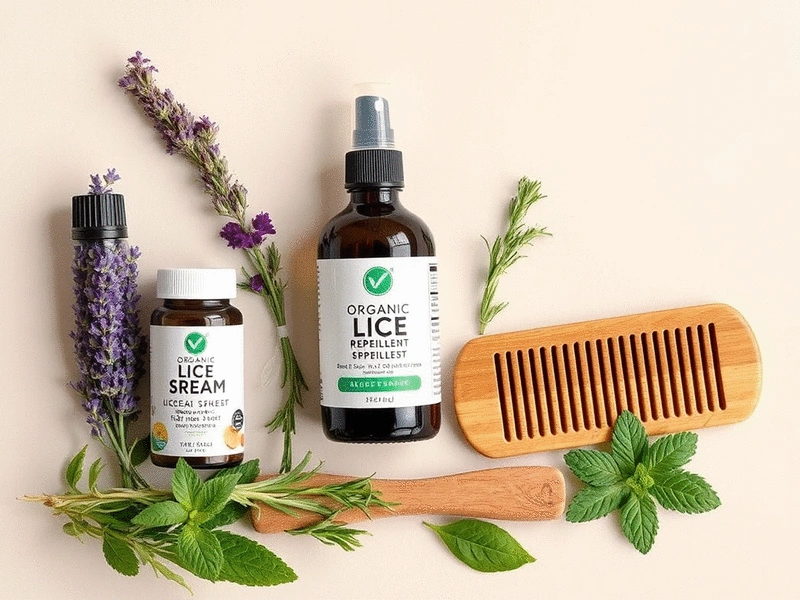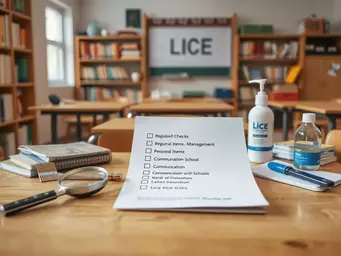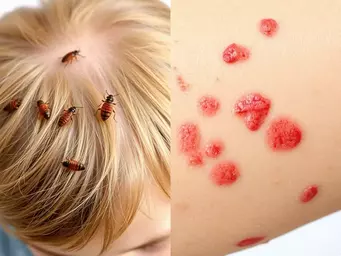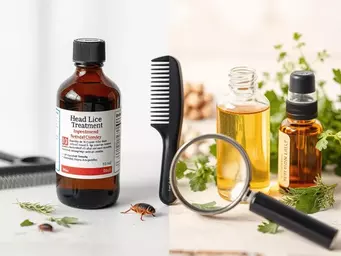Natural Lice Repellents
Utilize essential oils and botanical extracts.
- ✓ Gentler on sensitive skin, fewer allergic reactions.
- ✓ Effective when used consistently.
- ✓ Pleasant scents, easy to incorporate into daily routines.
Have you ever wondered about the effectiveness of natural ingredients in lice prevention? As parents, navigating this common issue can feel overwhelming, but understanding natural lice repellents could be your best strategy for keeping your family safe and healthy.
This visual compares key aspects of natural lice repellents and conventional treatments, focusing on safety, effectiveness, and user experience.
Utilize essential oils and botanical extracts.
Often contain harsh chemicals (insecticides).
Tea Tree Oil
Lavender Oil
Peppermint Oil
When it comes to lice prevention, many parents are turning to natural options. Understanding how natural lice repellents work can help you make informed choices for your family. These products often utilize essential oils and botanical extracts that not only repel lice but also support overall scalp health. It's crucial to know the science behind these ingredients to appreciate their effectiveness!
For instance, essential oils such as tea tree oil and lavender oil are well-known for their lice-repelling properties. These oils disrupt the lice's ability to cling to hair, making it harder for them to thrive. Research, such as that published in the Journal of Biomedical & Pharmaceutical Research, highlights the efficacy of certain plant extracts in repelling lice. Have you tried using natural ingredients in your lice prevention routine? Your experiences can help others find the right solution!
Natural lice repellents often feature a variety of essential oils known for their insecticidal properties. The science is quite straightforward: the compounds in these oils confuse and repel lice, making it difficult for them to settle on the hair. By choosing natural repellents, you can effectively reduce the likelihood of an infestation while ensuring your child’s sensitive skin remains irritation-free.
It's fascinating how nature equips us with tools to combat these pests! By understanding how these ingredients function, you can choose the most effective natural products for your family.
Choosing between natural and conventional lice treatments can be daunting. Conventional products often contain harsh chemicals that may pose safety risks, particularly for children. In contrast, natural lice repellents focus on using safe and gentle ingredients that can be just as effective without the worry of side effects.
When selecting a lice treatment, consider your child's comfort and safety as top priorities. What has been your experience with conventional versus natural solutions? Sharing your thoughts can help others navigate this common issue!
Now that we’ve explored how natural lice repellents work, let’s dive into some of the top products available. These products offer effective options for parents looking to keep lice at bay without compromising on safety or health.
Each of these products can play a vital role in your lice prevention strategy, so let's take a closer look at the specifics!
Natural shampoos can be a game changer in lice prevention. Many of these formulas harness the power of essential oils like tea tree oil and lavender oil. They not only cleanse the hair but also provide a protective barrier against lice!
Using these shampoos can make lice checks easier, as they leave the hair feeling clean and refreshed. Have you found a particular brand that works wonders? Sharing your favorites can help our community!
Let’s take a moment to explore some of the most popular natural lice shampoo brands and the key ingredients that set them apart. These shampoos are designed to be effective while maintaining a gentle formula suitable for children.
These brands have been well-received by parents and caregivers alike. By choosing shampoos with these natural ingredients, you can feel confident in your lice prevention efforts!
What has been your biggest challenge in dealing with lice? Share your thoughts below:
When it comes to managing head lice, making informed decisions is crucial for the well-being of your family. Choosing natural lice repellents can be a game changer! Not only do they provide effective protection against these pesky pests, but they also often come with fewer side effects compared to conventional treatments. By opting for natural solutions, you're prioritizing the health of your children while maintaining peace of mind.
As a parent myself, I understand the overwhelming choices available on the market. It’s essential to focus on products that use safe and effective ingredients. Here’s a quick overview of why natural repellents are worth considering:
Taking a moment to research and select the best natural lice repellents can help you feel more empowered in this often-stressful situation. Remember, prevention is just as important as treatment!
Now that you’re equipped with knowledge about the benefits of natural lice repellents, it’s time to take action! I encourage you to try out the recommended products we've discussed, such as those containing tea tree oil or lavender oil. Incorporating DIY strategies into your routine can also be incredibly effective—who doesn’t love a good homemade solution?
Here are some actionable steps you can take:
Finally, I want to hear from you! Feel free to share your experiences with these products or any questions you might have about lice prevention. Together, we can tackle this challenge and make it easier for all families! What’s worked for you? Let’s keep the conversation going!
Here is a quick recap of the important points discussed in the article:

 Did you know that effective lice prevention can not only save your child from discomfort but also fo
Did you know that effective lice prevention can not only save your child from discomfort but also fo
 Have you ever felt overwhelmed trying to identify a scalp condition affecting your child? Understand
Have you ever felt overwhelmed trying to identify a scalp condition affecting your child? Understand
 Have you ever wondered why head lice outbreaks seem to flourish in schools and daycare centers? Unde
Have you ever wondered why head lice outbreaks seem to flourish in schools and daycare centers? Unde
 Have you ever faced the challenge of treating head lice? Understanding the different approaches can
Have you ever faced the challenge of treating head lice? Understanding the different approaches can